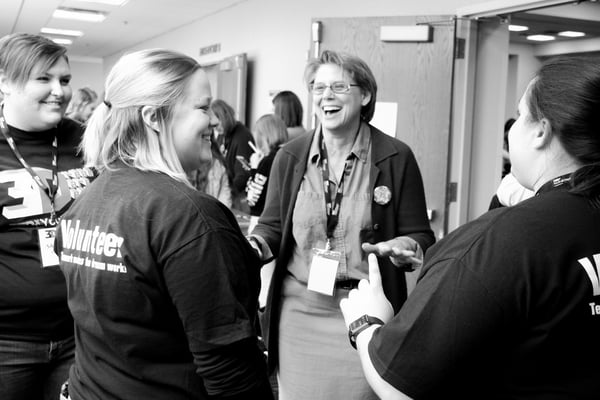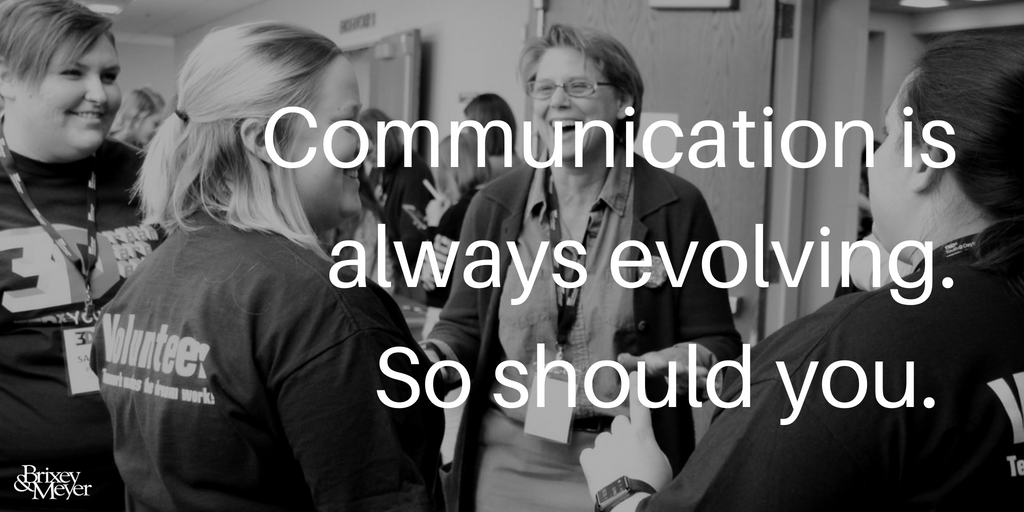Communication is always evolving. So should you.

Honing your communication and soft skills is not easy to do. Oftentimes the average employee figures out what works for them and sticks to it due to habit, time constraint or maybe simply because they don't see the need to change. I find myself having to intentionally set aside small pockets of time away from new projects and clients in order to even think about what I need to improve, let alone going about actually improving those things.
But consider this: in the workplace, from first impressions, to daily emails, to internal meetings and sales pitches - every single interaction you have with a customer, coworker, or manager can potentially impact your company's bottom line. I could be exaggerating a little, but it's not one day of healthy eating that will help you diet. It's all the exchanges combined over months and years that will create a larger impact. Communication is how we learn from one another and connect with each other.
While I'm no communication or marketing expert, I do relate to the average professional who has a lot of face time with clients and coworkers and who has a passion for volunteerism. So, my personal journey on how to begin leveling up my own communication skills goes back to my last post on community activism.
Being a part of community initiatives has helped me ten-fold. As a volunteer, here are some things you can learn, which in effect can help your company, which in turn can help the community by being prosperous!
Communicating cross-generationally. I once took an assessment test, and one key takeaway for me was that everyone has a unique communication style and preference. Although I hate placing people in buckets, it is true that there are obvious differences in communication styles across generations. For example, baby boomers often appreciate a phone call or a face-to-face meeting over an email, whereas millennial's might prefer a text or an email over a long conversation. In the workplace, younger generations often interact with younger peers and older generations with older peers, so it's difficult to learn how to break down those generational barriers. But in the volunteer space, because there is less of a hierarchy, you HAVE to work closely with all generations in order to make a true difference.
Articulating ideas/directions succinctly. Everyone is busy. To get what you need as a volunteer or out of a volunteer, your communication outlets must be short and to the point. Among many other things, volunteering in the TEDxDayton Speakers Committee has given me an opportunity to practice articulating my ideas better. Communicating, especially in groups, does not come to me naturally. But in these TEDxDayton meetings, I am in a room full of professionals of very high caliber in the Dayton community. If I can't get my thought out effectively, it will likely drown.
Listening carefully. I used to be that person who would forget your name the second after you told me. While I'm still nowhere near perfect, I've learned to slow down my gut-reaction to respond quickly to people and instead actively listen not only with my ears but with my eyes as well. People say a lot, not just with their words, but with their body language too. In the workplace, where most of your peers are in the same industry and department as you, you tend to fall into the same listening patterns. However, when you volunteer, you're exposing yourself to people across all industries, socioeconomic statuses and cultures. Being sensitive to these differences and the different ways of communication will help you make fewer wrong assumptions in the workplace and therefore be a better communicator.
Feel free to reach out if you have specific questions with regards to this blog.

